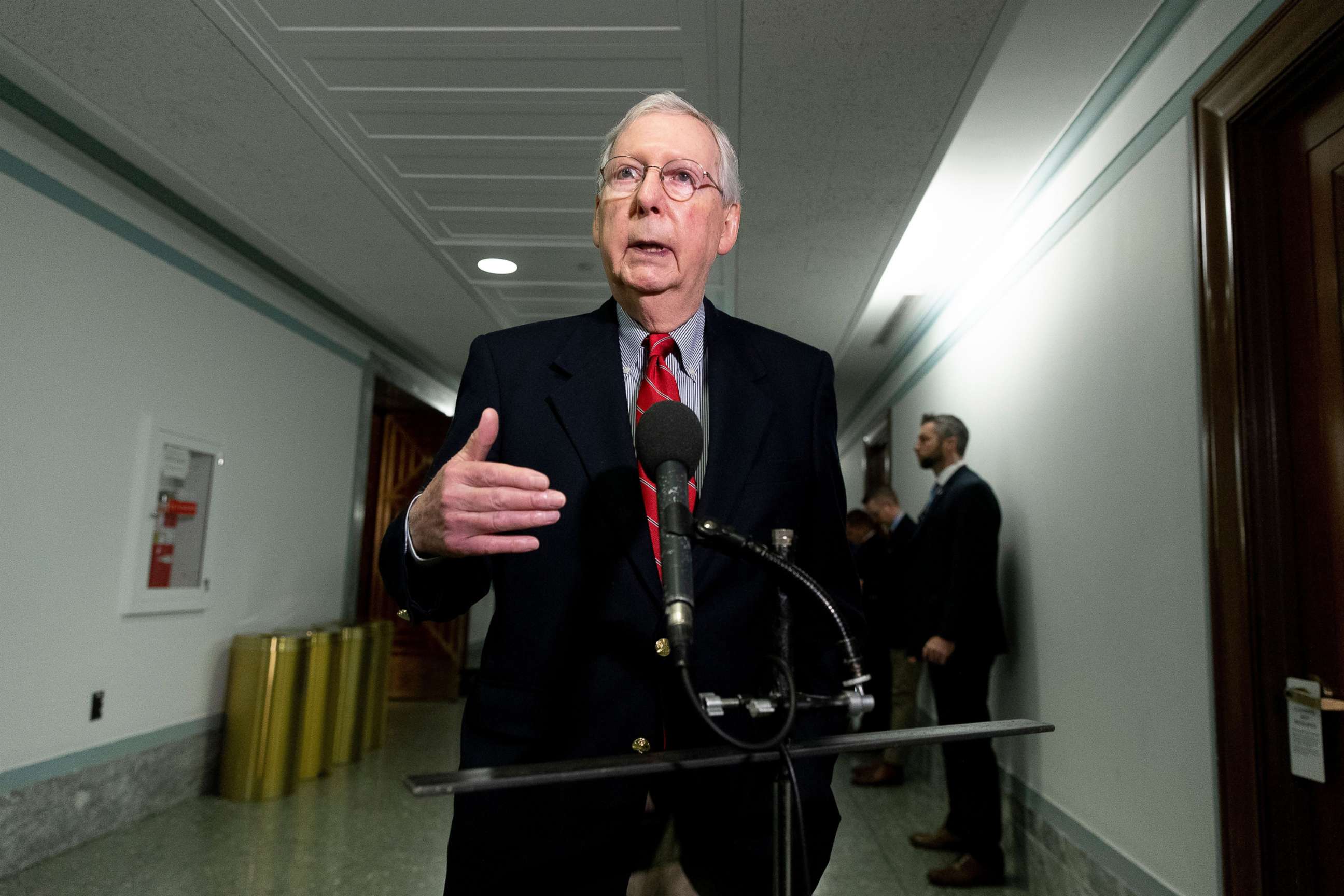Lawmakers hammering out details of economic stimulus: 'We're getting closer'
The package could equal 10% of U.S. gross domestic product, Larry Kudlow said.
Senators and White House negotiators signaled on Saturday that they're closer to striking a bipartisan deal on a massive economic relief package to address the novel coronavirus crisis.
"I think we're getting closer and closer to an agreement," Senate Majority Leader Mitch McConnell told reporters.
"All the discussions have been in good faith," he added, referring to negotiations with Democrats. "I think we're clearly going to get there."
McConnell promised senators would move at "warp speed" to pass bipartisan stimulus legislation after the Trump administration called for economic relief in a massive package likely to exceed $1 trillion.
Although, according to Larry Kudlow, the White House's top economic adviser, the bipartisan economic relief package may actually expand to more than $2 trillion.
Kudlow told reporters Saturday the package would be approximately 10% of the country's gross domestic product, calling it a "very large package."
When a reporter noted that 10% would be more than $2 trillion, he replied: "That's correct."

White House legislative affairs director Eric Ueland later addressed those remarks.
"Larry's talking about the combination of what we're doing here, the spending bill and what we're doing here with the stimulus bill, as well as the Federal Reserve," Ueland said. "We're working against that very tight clock, very aggressive clock."
That clock was set by McConnell, who said on Friday he hoped lawmakers could reach an agreement by midnight, a deadline since extended to Saturday. McConnell has instructed lawmakers and staff to begin drafting legislation, and the Senate intends to take its first procedural vote on the giant package on Sunday.
Senate Democrats want to increase the amount of unemployment insurance, which continues to be one of the major sticking points in negotiations.
"We propose that this be not just a one-shot deal, but a paycheck every work period. And it should go for as long as the crisis lasts," Minority Leader Chuck Schumer said on the Senate floor Saturday.
"We want to fund it for at least four months, maybe six," he said. "If the crisis ends more quickly, of course, we might be able to terminate it. But we need to give the workers of America the assurance that they will have paychecks -- the same amount of resources that they had before this crisis that they have now. And it will occur, ongoing, until we beat this horrible disease."
Senators spent roughly 12 hours on Friday negotiating. McConnell emphasized that lawmakers and representatives for the Trump administration are making "important progress."
"No legislation will move through the Senate that does not contain ideas from both parties," McConnell said. "That's the way this body is designed. So these bipartisan talks have been essential and they're ongoing."
McConnell had kind words for Democratic colleagues.
"I'm impressed and heartened by the speed and bipartisan spirit that has characterized the past days discussions, but we need to keep it up," McConnell said. "We absolutely cannot let up now. We need to finish these negotiations and move forward."
"This is a national emergency," he added. "It's time to come together, finalize the results of our bipartisan discussions and then close this out. United we stand. Even if we have to stand 6 feet apart for a few weeks.”
What to know about coronavirus:
- How it started and how to protect yourself: Coronavirus explained
- What to do if you have symptoms: Coronavirus symptoms
- Tracking the spread in the U.S. and worldwide: Coronavirus map




